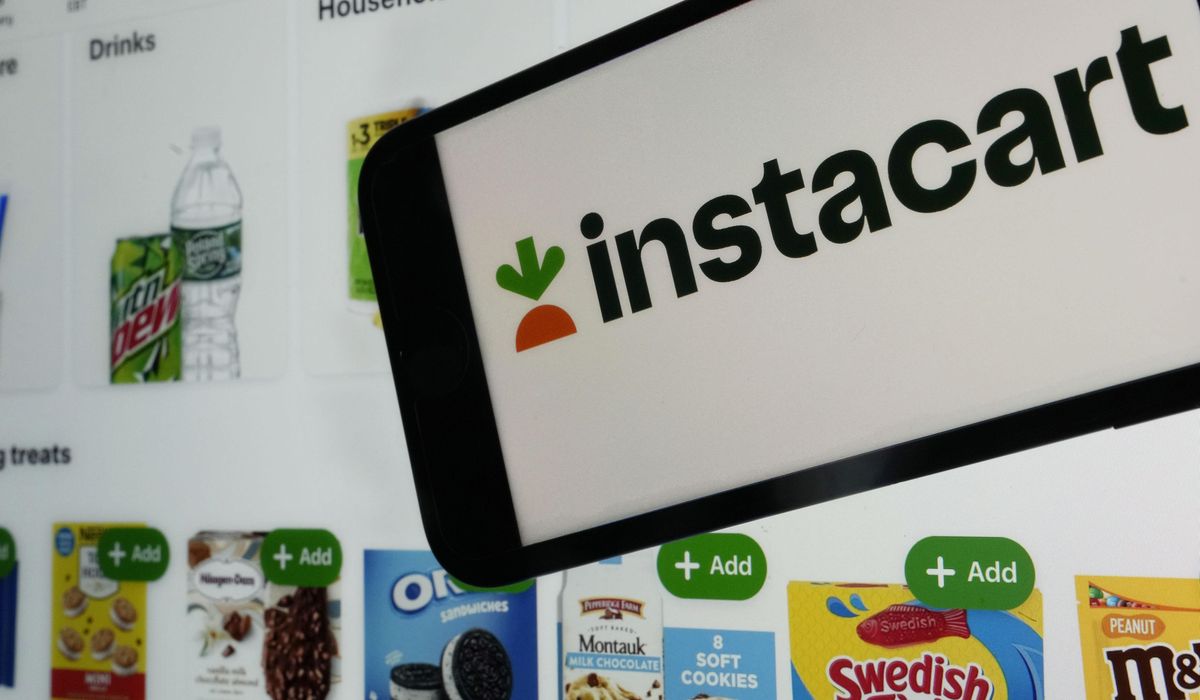


Instacart has joined Uber Eats and DoorDash in calling on Congress to include their app delivery drivers in “no tax on tips” legislation that would exempt gratuities from federal income tax.
The San Francisco-based food delivery service told The Washington Times that the House version of the bill, which includes gig workers as “independent contractors,” would free their drivers from reporting billions of dollars as taxable income.
Known as “shoppers,” the company’s self-employed workers use the Instacart app to purchase food and deliver it to customers. They typically earn $15 to $20 an hour before travel expenses, including substantial tips.
“At Instacart, we’re committed to supporting shoppers and helping them maximize their earnings,” an Instacart spokesperson said. “That’s why we strongly support No Tax on Tips and the inclusion of independent contractors. This is a matter of fairness and ensuring all workers are able to keep more of their hard-earned income.”
According to the Flex Association, an industry group, roughly 600,000 of the nation’s 7.3 million app-based drivers work for Instacart. Instacart said they collectively earned over $15 billion between the company’s founding in 2012 and 2023.
While President Trump made “no tax on tips” a signature campaign proposal last year, it remains unclear what the Republican-controlled Congress will pass out of reconciliation for his signature.
The Senate passed a version of the tax break on May 20 that covers only hotel, beauty, beverage, food service, pizza delivery and other traditional employees. It caps the deduction at $25,000 a year.
The House version of the bill passed two days later. This proposed tax break expires at the end of 2028, has no cap on deductions, exempts overtime on top of tips, and includes self-employed contractors.
Both versions of the legislation limit the tax break to people earning under $160,000 in 2025. Social Security and Medicare taxes would still apply.
Uber and DoorDash have launched public campaigns supporting the House version.
“Millions of hardworking Dashers deserve this tax cut, and now is the time for Dashers to make sure federal lawmakers get this right,” Max Rettig, DoorDash’s global head of public policy, said in April.
“We’ve met with lawmakers, shared your stories, and partnered with others in the industry to make the case,” Uber said in a message to drivers on the House bill’s passage.
Financial experts say it’s impossible to estimate how much of their tips self-employed delivery drivers lose to federal taxes due to varying income brackets.
But Angelica Gianchandani, a marketing instructor at New York University, said the apps’ public support for the House version of the bill is more about “acknowledging the dignity of invisible labor” than publicity.
“When companies like Instacart, Uber, and DoorDash support ‘no tax on tips’ legislation, they are signaling alignment with the cultural and economic realities of today’s workforce,” Ms. Gianchandani said. “Whether the bill passes may depend less on partisanship and more on whether lawmakers are ready to evolve with the modern economy, where flexibility, not formality, defines how we work.”
According to a recent Senate HELP Committee report, 1 in 3 Americans now engage in some independent work either full-time or to supplement part-time earnings.
A Morning Consult-Flex Association survey released in April 2023 found that over half of gig workers said it improved their financial security and 85% reported that it helped them manage inflation challenges.
At an industry level, Flex estimates that app-based workers earn $5.1 billion a year in supplemental income. The company reports that delivery and rideshare platforms earn $212 billion annually.
• Sean Salai can be reached at ssalai@washingtontimes.com.
